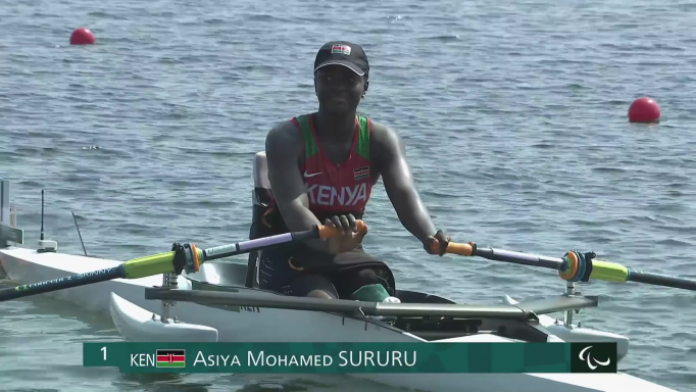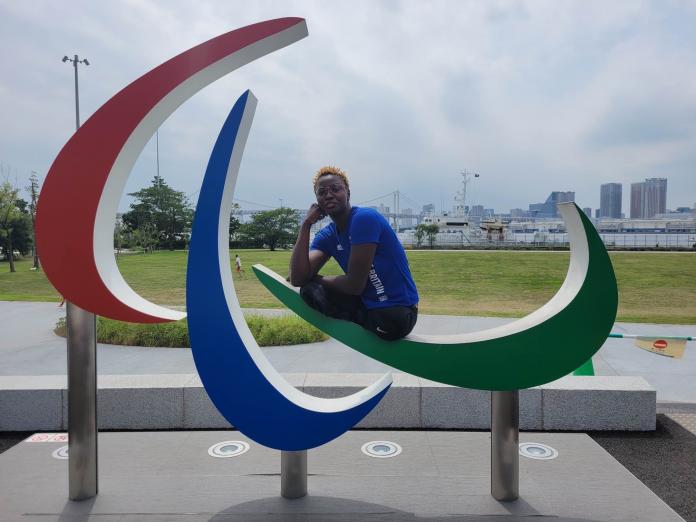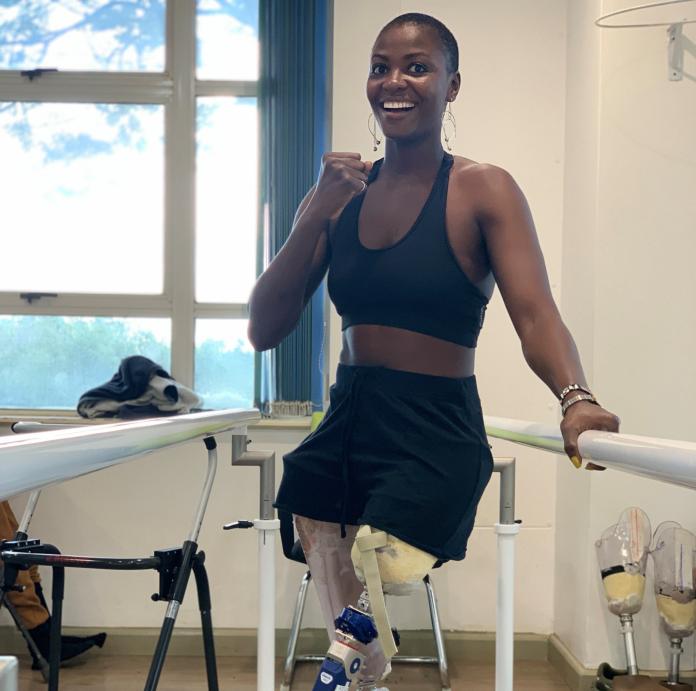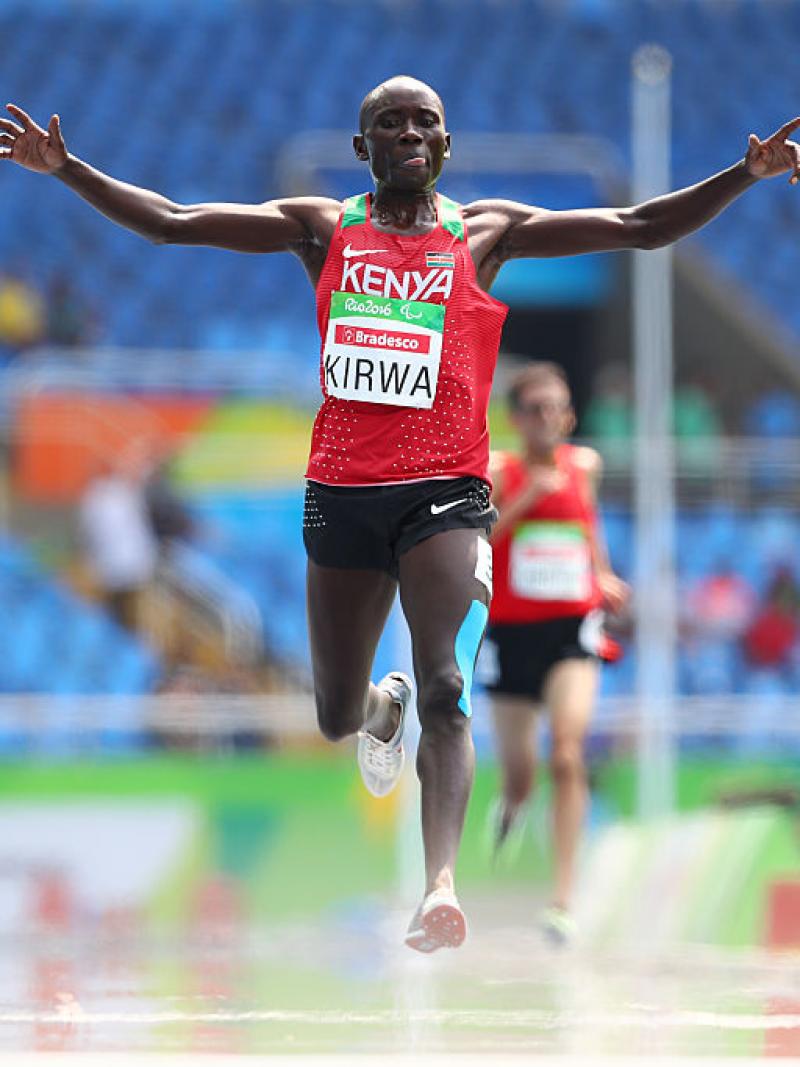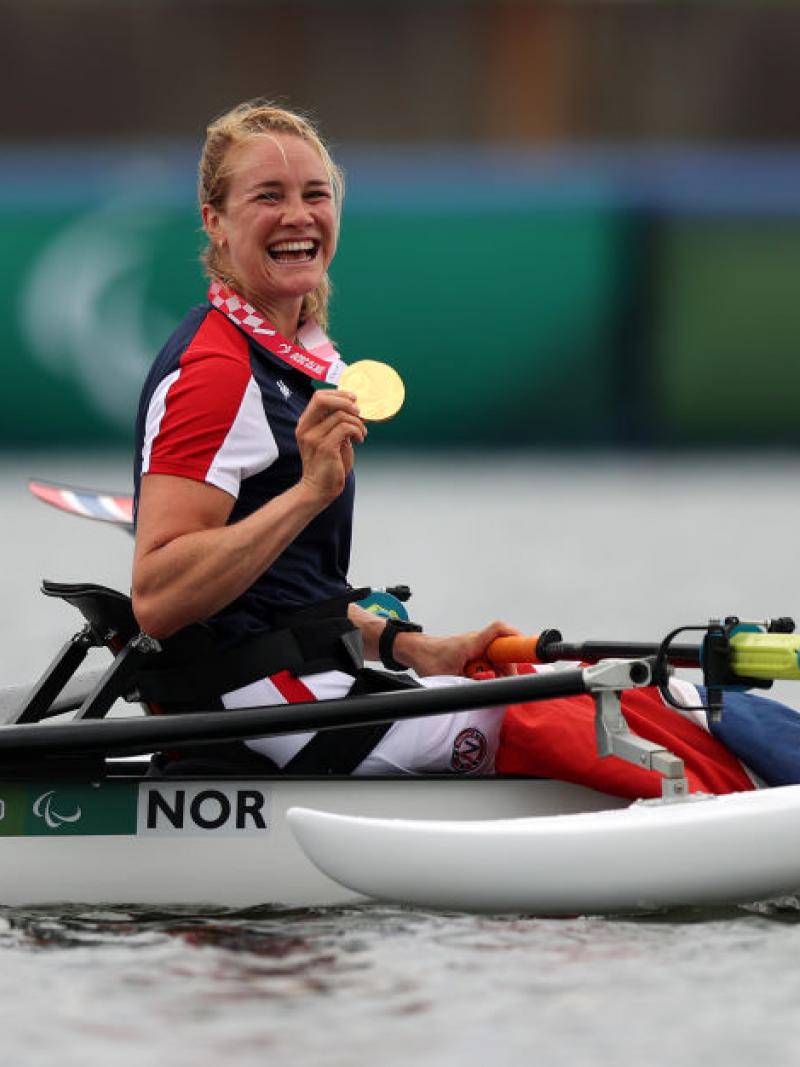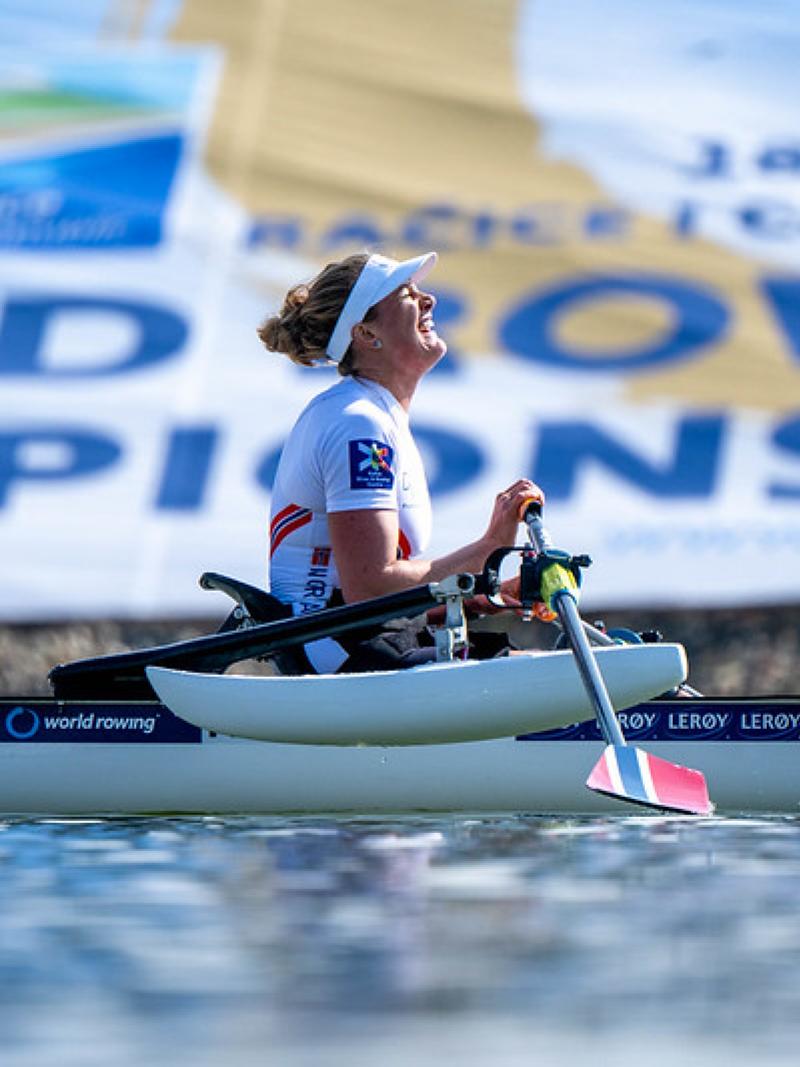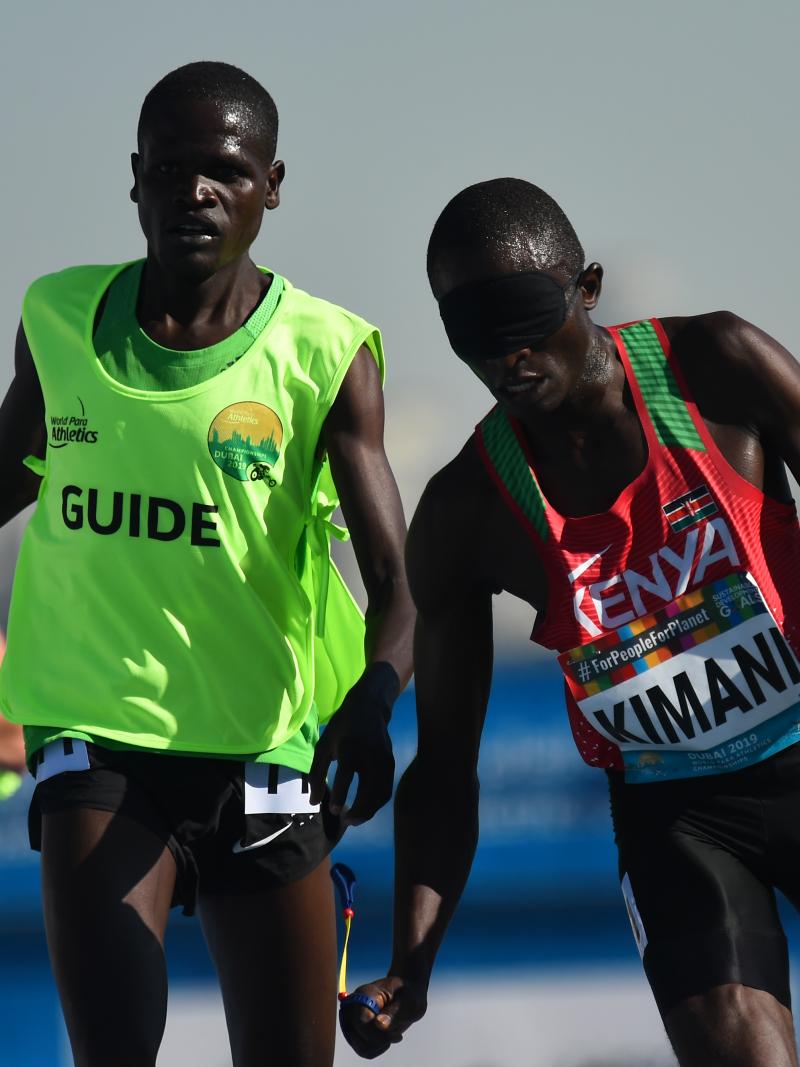Kenya’s Para rower Sururu: “I wanted to fly” on water just like other athletes
Asiya Mohammed Sururu competed at the Tokyo 2020 Paralympic Games with “luck” and support from family and friends. Now, the double-amputee athlete is learning to walk 24 Feb 2023
In her first-ever Para rowing race, Asiya Mohammed Sururu thought her competitors were flying on water. Meanwhile, she was fighting her fear of water.
But then she pulled herself together and tried to fly just like the others did. It was at that moment, in Italy in May 2019, that the Kenyan athlete fell in love with Para rowing.
“I remember coming in last in my first competition, but it was in the moment that everyone was passing away from me. They were flying. I was left alone. Me, water and the boat,” Sururu said.
“I thought my heart would stop and my boat will capsize, but I relaxed and composed myself. I could feel my heartbeat. I felt the connection with the water from my oars to the boat, to my hands and my heart,” she added. “I felt like, ‘This is it, let’s do this’. And just like that, I finished and my love for rowing ignited.”
Fast forward two years, Sururu has competed at the Tokyo 2020 Paralympic Games, representing Kenya on the world’s biggest stage. While she said she qualified for the Games due to “luck”, being in the Japanese capital opened new doors for the 30-year-old athlete.
You can fly
The athlete lost both legs and three fingers on her left hand in a train accident when she was two years old. It happened when she was crossing the road to go home from her grandmother’s food kiosk.
Her aunt and, later her cousin, raised Sururu after her father suffered a stroke seeing the train accident and her mother passed away about six years later.
Sururu, who practises several sports including wheelchair tennis, did not think at first that she had what it takes to be at the Paralympic Games. Her boat capsized when she did the sport for the first time at a try out session in Mombasa, Kenya in 2018.
But it all changed when she went to Gavirate, Italy to be classified and got “exposed” to the Para rowing scene. Her first-ever race there was a life-changing experience.
“(The other athletes) were rowing very fast like they were flying. You know why I finished? I could have just said ‘I have a blister and I just can’t continue’. But I wanted to fly just like them, I didn’t care if I go straight or not,” Sururu said.
“I just wanted to go to the end line and that’s when I really wanted to learn the sport.”
With a little luck
While falling in love with Para rowing may seem like fate, the Kenyan athlete claims it was “luck” that helped her reach Tokyo 2020.
Sururu recalls lacking training and missing a coach and a boat, but her family and friends chipped in so she could travel to a qualification event in Tunisia in October 2019.
Her family opened a WhatsApp group and asked for donations. The group got bigger and bigger as people invited their friends to help Sururu travel. In just three days, the athlete collected about $3,000 from about 200 people.
Once she was in Tunisia, she borrowed a boat from another athlete and received tips from other athletes in the sport. Sururu finished first in her event to book a ticket to the Tokyo 2020 Paralympic Games.
“Everything was about luck, luck and luck. I went there, and despite not going in a straight line (in the race), I got to be the fastest in the tournament. Just like that, I got to qualify,” she said.
Competing in Tokyo and representing Kenya there was a totally different thing, however. Sururu debated whether going to Japan was a good idea given her lack of training and experience.
Instead, she approached the Games, which took place between 24 August and 5 September 2021, as a “school” where she could learn from the world’s best. And the Games turned out to be just that.
Sururu saw how calm the top athletes were, how they had a “now or never” mindset and prepared like their lives depended on their race.
“I was truly inspired by the rowing community at large,” she said. “I was inspired to do more, but I was like, ‘I love this game. I see what these people are doing and what they can do and I lack these skills, the equipment’.
“But see, I can actually do what they are doing. Who knows? Even better than them."
Step by step
More than a year after Tokyo 2020, Sururu practises rowing indoors in the hopes of competing at Paris 2024. She has also taken on another challenge, one of the biggest of her life.
Sururu has used a wheelchair for the majority of her life, but in May 2022 she started learning how to walk with prosthetic legs.
“I started walking at the age of 30. But you feel like a baby in a grown woman’s body. Every step you make is celebrated,” she said with a laugh. “You get to fall all over. I’m falling everywhere because I just want to learn.”
Learning to walk has proven to be a gradual process. Sururu started by using equipment similar to a baby walker and as she got more comfortable, she progressed to crutches.
In early 2023, the athlete celebrated a big milestone - she took her first six steps without crutches, but this happened by accident. Sururu was cooking in her kitchen when she remembered that she forgot to put salt in her food.
“There was a distance between salt and the meal, and just like that I took the salt and put it in the food I was cooking. Then I noticed, ‘What? Am I not using my crutch?’” she said, explaining that the key to walking may be to stop thinking about the actual movements.
“I’m glad I took that risk to start walking and it’s like starting from fresh. It’s like you are taking a risk to do something unknown and unpredictable,” Sururu added.
“(Walking) is a journey that makes you rethink life and see things in different perspectives.”

 Facebook
Facebook
 Instagram
Instagram
 Twitter
Twitter
 Youtube
Youtube
 TikTok
TikTok
 Newsletter Subscribe
Newsletter Subscribe

